Unusual Beauty Standards in Africa
The subject of beauty is critical to many people despite racial, cultural and gender boundaries. Regarding beauty as a social construct, social studies researchers believes the varying standards of beauty are tied to the traditions and beliefs within each respective culture. For instance, “youthfulness” is the beauty goal in America, while naturally flawless skin is the beauty ideal in Europe. In Africa natural and kinky hair, dark skin, figure eight shaped girls are considered to be beautiful. In some parts of Africa, plate lips and beans tattoos are unusual standards of beauty and eligibility to get married.
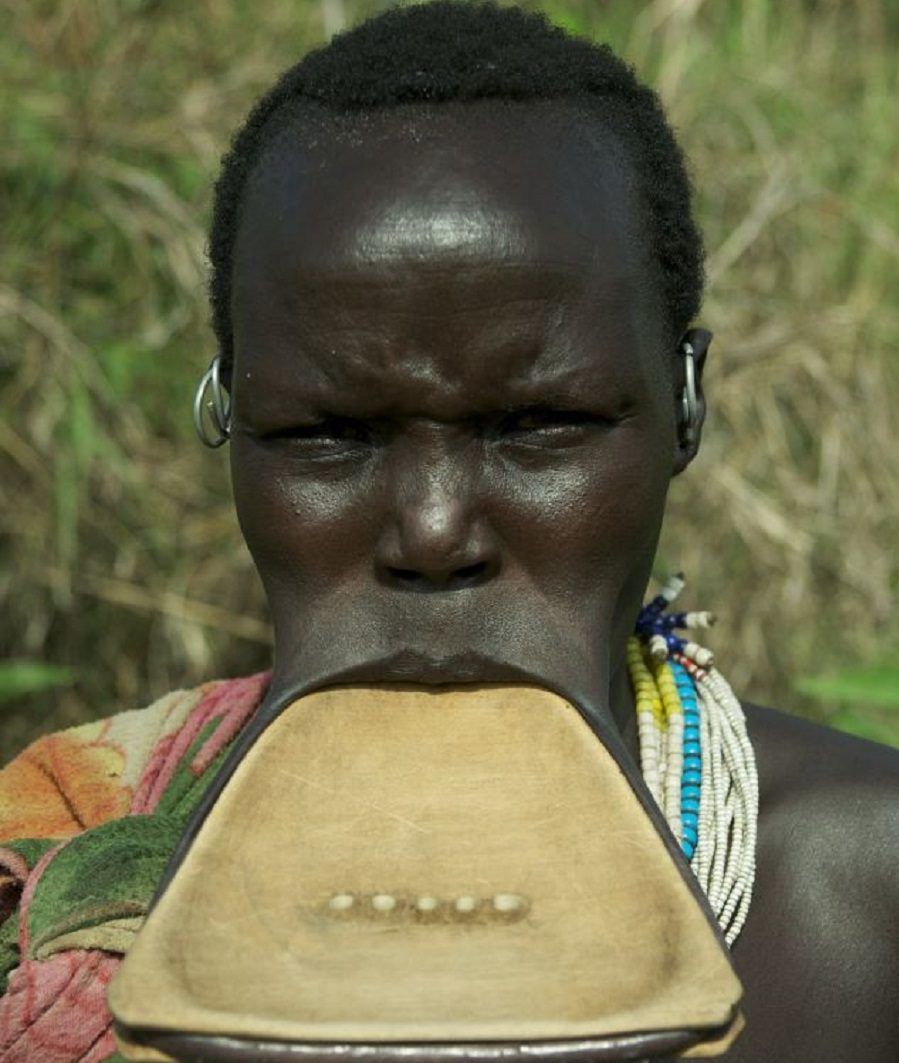
The lip plate, also known as a lip plug or lip disc, is a form of body modification practised by the Mursi and Surma tribes in Ethiopia, Sara tribe of Chad, Makonde tribe of Tanzania and Mozambique, and Suyá men of Brazil. From a young age, a hole is inserted either in the upper or lower lip of the inhabitants of these tribes and as time unfolds larger plates are inserted. The bigger the plates the more you are considered beautiful. For decades now most of these tribes have disseized from the unusual beauty standards.
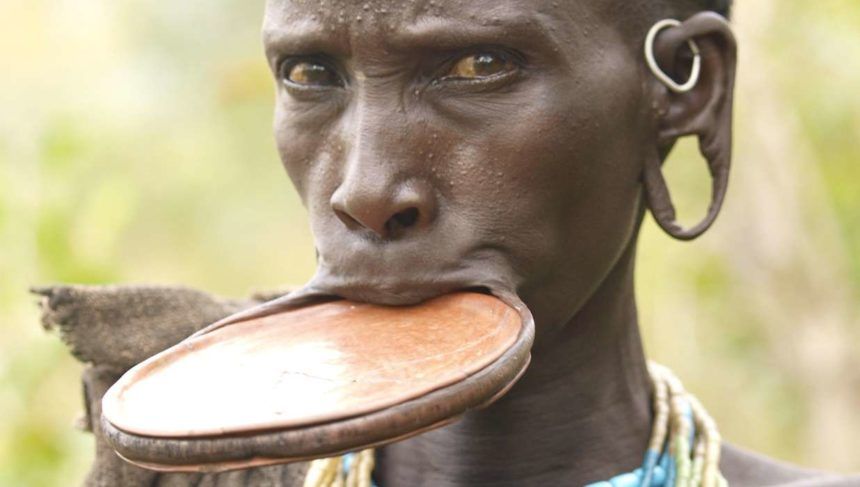
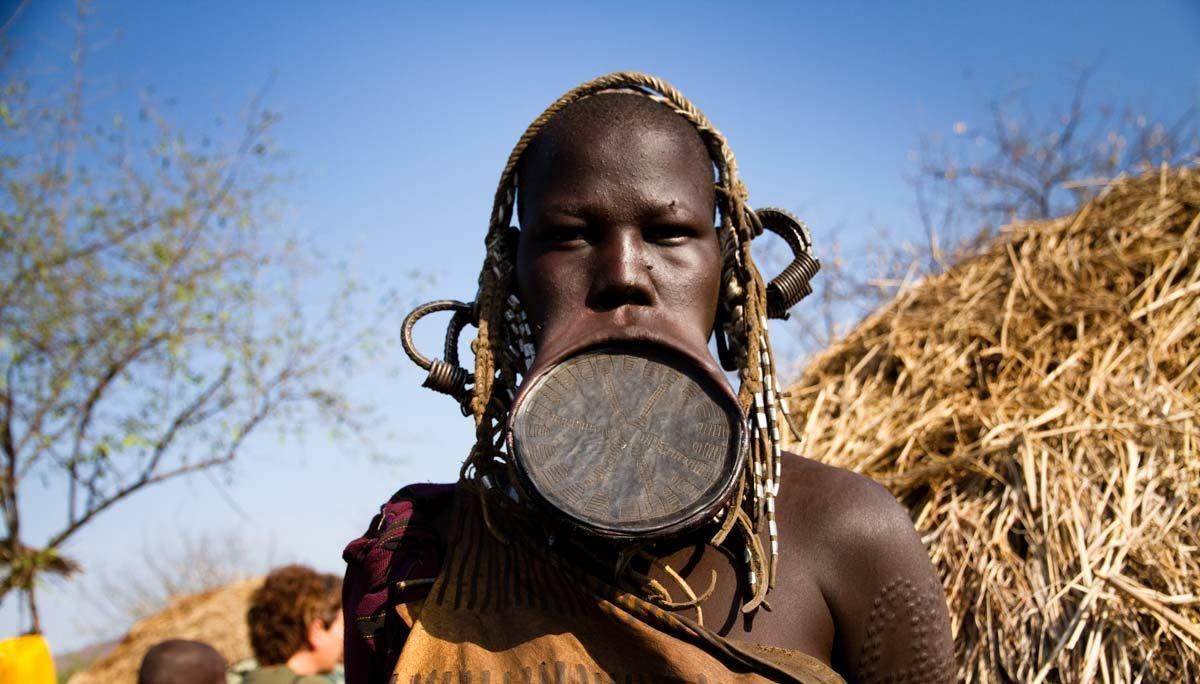
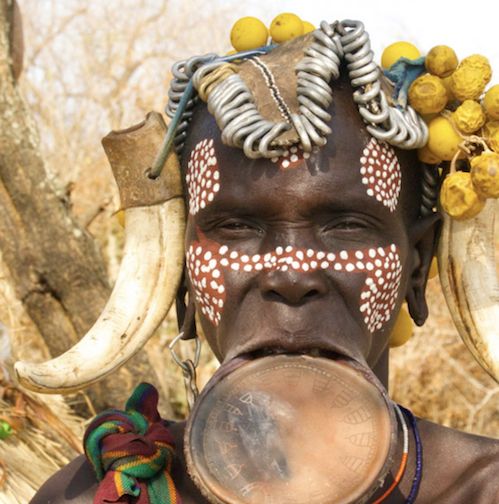
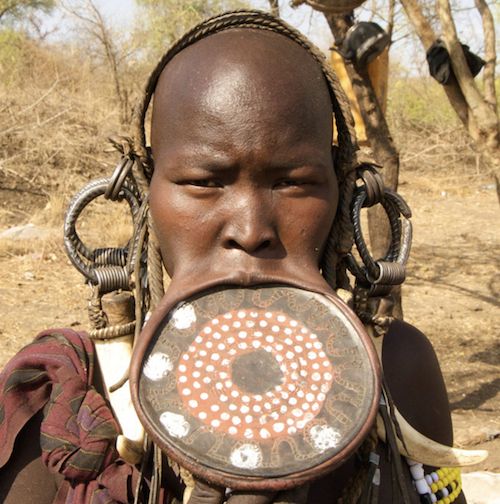
The Surma people is made up of three ethnic groups: The Mursi, the Suri, and the Mekan people. The Suri and the Mursi share a similar culture. Their women’s beauty is determined by how large their lip plate is. It is uncertain how this custom came into being. One theory is; lip plating originated as a deliberate disfigurement designed to make women and young girls less attractive to slave traders. Some researchers claim that the size of the lip plate (the bigger the better) was a sign of social importance or wealth within the tribe.
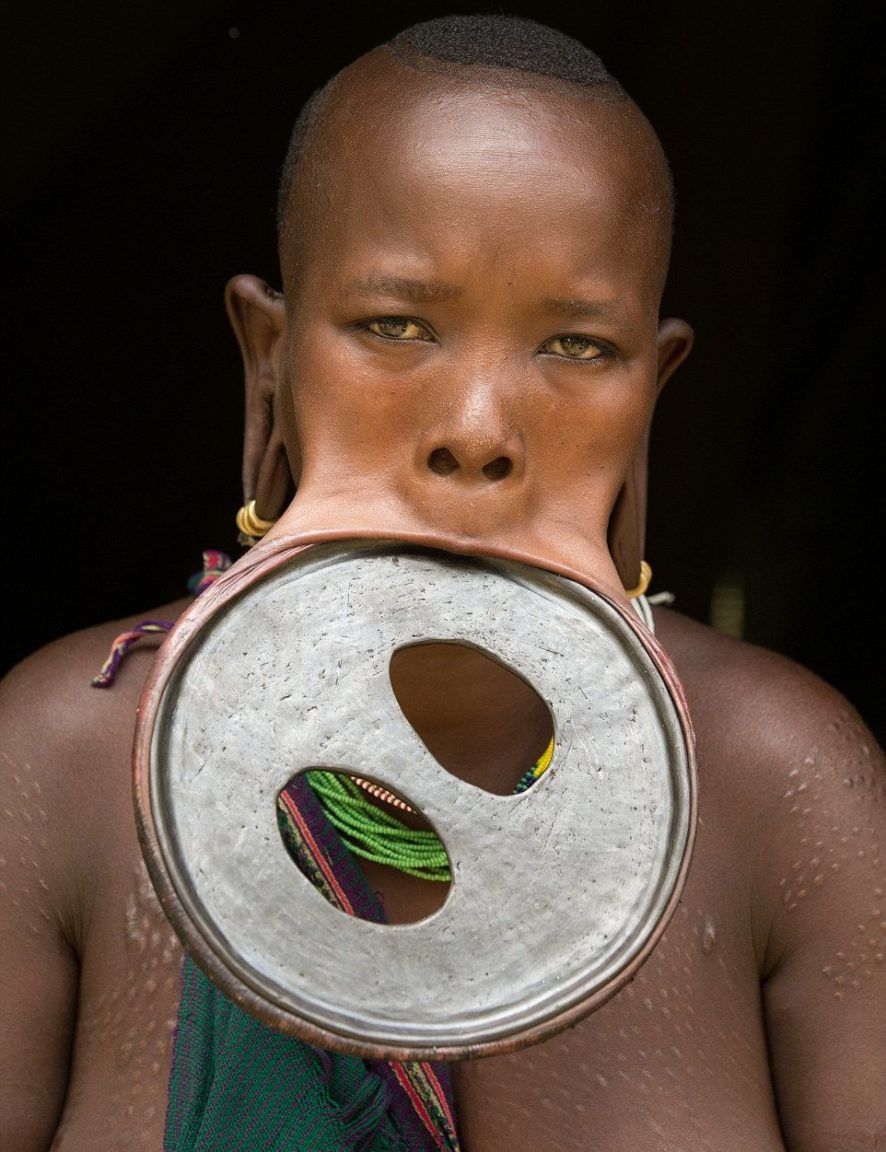
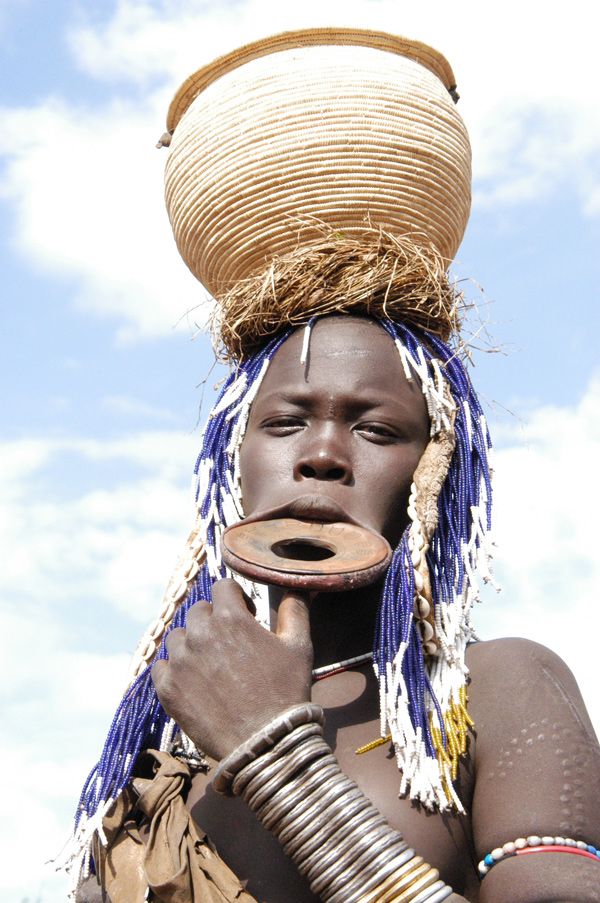
The custom of wearing a lip plate is linked to a female's fertility and eligibility for marriage.As a vital part of their culture the plates symbolizes, great beauty, serves as commitment to the husband as it is worn with great pride when serving him food. As the woman ages she may later take them off and if the husband dies, the lip plate is removed since a woman’s external beauty is said to fade after his death. Also, the plate is a powerful visual marker of Mursi identity. Without it, they run the risk of being mistaken for a member of another tribe.
Young Mursi men, clash in the battle of Donga to prove their worth to their future wives. Contenders wear a duelling kit known as Umoga. This serves as protection and decoration. Their fighting shin guard are made from animal skin, such as leopard, and tiger.
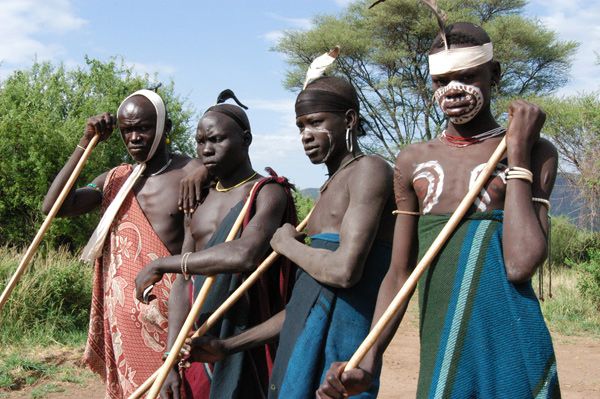
Other beauty standards have now become forbidden in some parts of Africa. The Makonde tribe of Mozambique is well known for their primitive tattoos don using crude methods. The general Makonde term for tattoo is dinembo “design” and the tattooing process usually required one to three sessions with the mpundi wa dinembo (“tattoo design artist”) to produce the desired result. If a client’s was light skin, one meeting with the tattooist was usually enough, but those clients with darker complexions paid their tattoo masters several visits.

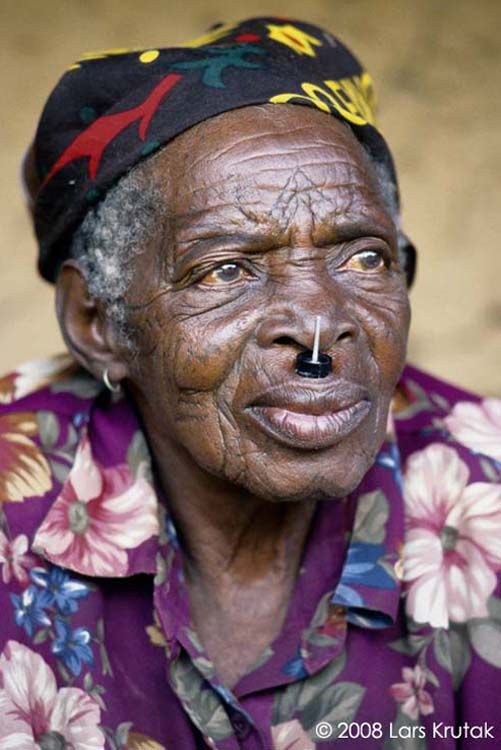
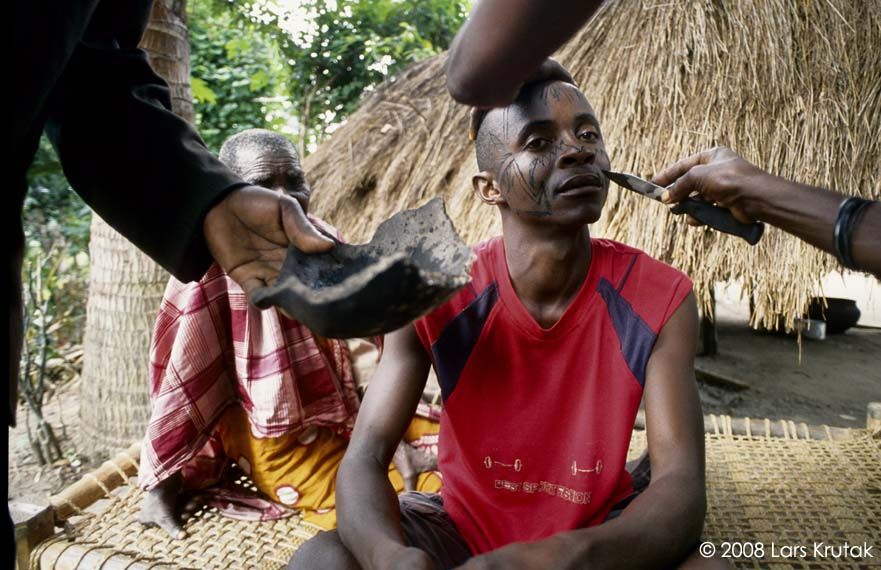

Traditionally, Makonde tattoos are considered to be regional indicators and each tribe preferred specific motifs that were laid down in a variety of set patterns. The face and other parts of the body contained chevrons, angles, zigzag and straight lines with an occasional circle, diamond, dot, or animal figure. Today these patterns have remained largely intact, but they only appear on men and women over sixty years of age. Sadly, the Makonde tattoo artists of the Mueda plateau stopped inking their clients in the early 1960s, and today only a handful of elderly tattoo masters remain in northern Mozambique.
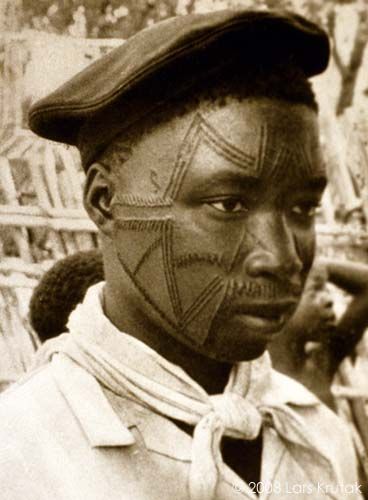
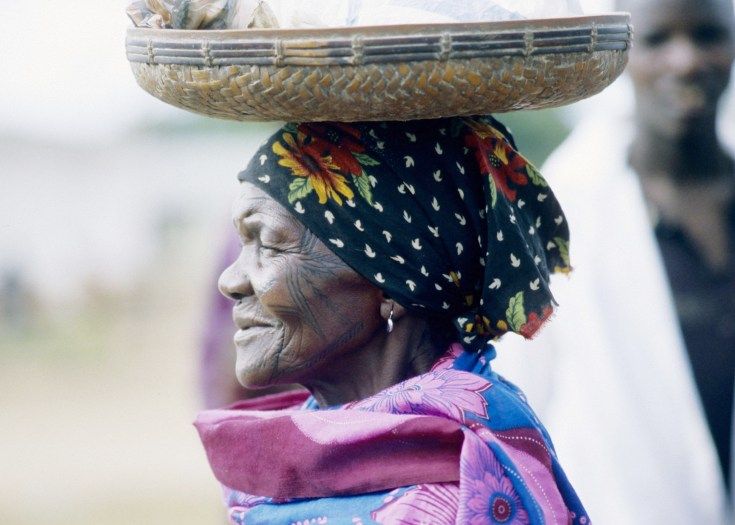
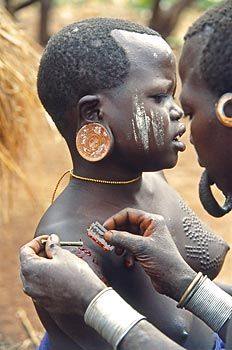
Common decorative motifs such as spiders (lidangadanga), sacred antelope (nandolo), and even yucca root bundles (nkaña) may have had magical associations in the past. And today Makonde women continue to believe that the tattoos placed on their abdomen (mankani) and inner thighs (nchika) are erotic and also have the supernatural power to attract a husband.
